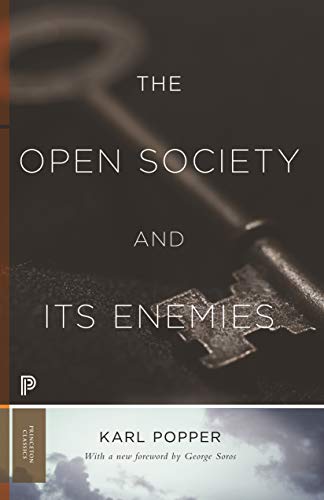The Open Society and Its Enemies by Karl Popper is a seminal work in political philosophy, offering a robust defense of liberal democracy and a critical examination of the philosophical underpinnings of totalitarian regimes. Written during World War II and published in 1945, the book remains profoundly relevant in contemporary discussions about freedom, governance, and the role of critical inquiry in society.
Understanding the Core Concepts
1. Historicism and Its Pitfalls
Popper introduces the concept of historicism, the belief that history unfolds according to predetermined laws or inevitable patterns. He argues that this perspective undermines human agency and paves the way for authoritarianism by suggesting that individuals are mere instruments of historical destiny. By challenging historicism, Popper emphasizes the importance of individual choice and the unpredictable nature of human progress.
2. The Open vs. Closed Society
Central to Popper’s thesis is the distinction between open and closed societies.
- Closed societies: Characterized by rigid structures, dogmatic beliefs, and resistance to change. These societies often suppress dissent and prioritize collective goals over individual freedoms.
- Open societies: Defined by democratic governance, individual rights, and a commitment to critical discourse. Such societies embrace change and encourage the questioning of established norms
Popper advocates for open societies as the bedrock of human progress and freedom.
Volume I: The Spell of Plato
In the first volume, Popper scrutinizes Plato’s political philosophy, particularly as presented in The Republic.
- Critique of the Philosopher-King: Popper contends that Plato’s ideal of a ruling class of philosopher-kings leads to authoritarianism, as it concentrates power in the hands of a few deemed to possess absolute truth.
- Opposition to Change: Plato’s emphasis on a static, ideal state resists the dynamic nature of human societies, potentially stifling innovation and progress.
By challenging Plato’s ideas, Popper warns against the dangers of utopianism and the suppression of individual freedoms in pursuit of a perceived perfect society.
Volume II: The High Tide of Prophecy – Hegel, Marx, and the Aftermath
The second volume extends Popper’s critique to the philosophies of Hegel and Marx.
Hegel’s State Absolutism
Popper accuses Hegel of glorifying the state as the ultimate embodiment of the Absolute Spirit, thereby justifying the subjugation of individual freedoms for the sake of state objectives. He argues that this perspective provides ideological support for authoritarian regimes.
Marx’s Historical Determinism
While acknowledging Marx’s contributions to social critique, Popper challenges his theory of historical materialism, which posits that economic factors determine historical development. Popper contends that this deterministic view neglects the role of individual agency and can lead to justifications for revolutionary violence.
The Paradox of Tolerance
An important concept introduced by Popper is the paradox of tolerance. He argues that unlimited tolerance can lead to the rise of intolerant forces that may ultimately destroy the tolerant society itself. Therefore, he posits that a truly open society must be prepared to defend itself against those who seek to undermine its foundational principles.
Legacy and Contemporary Relevance
Since its publication, The Open Society and Its Enemies has been both lauded and critiqued.
- Influence on Political Thought: The book has significantly influenced liberal democratic theory and has been praised for its rigorous defense of open societies.
- Criticism of Interpretations: Some scholars argue that Popper’s interpretations of Plato, Hegel, and Marx are overly simplistic or misrepresentative.
In today’s world, marked by political polarization and challenges to democratic institutions, Popper’s emphasis on critical thinking, individual rights, and the dangers of dogmatic ideologies remains profoundly pertinent.
Conclusion
Karl Popper’s The Open Society and Its Enemies serves as a powerful reminder of the importance of safeguarding democratic values and promoting critical inquiry. By dissecting the philosophical roots of totalitarianism, Popper provides a framework for understanding and resisting the forces that threaten open societies. His work continues to inspire debates on freedom, governance, and the role of philosophy in public life.

The Open Society and Its Enemies
Karl Raimund Popper



